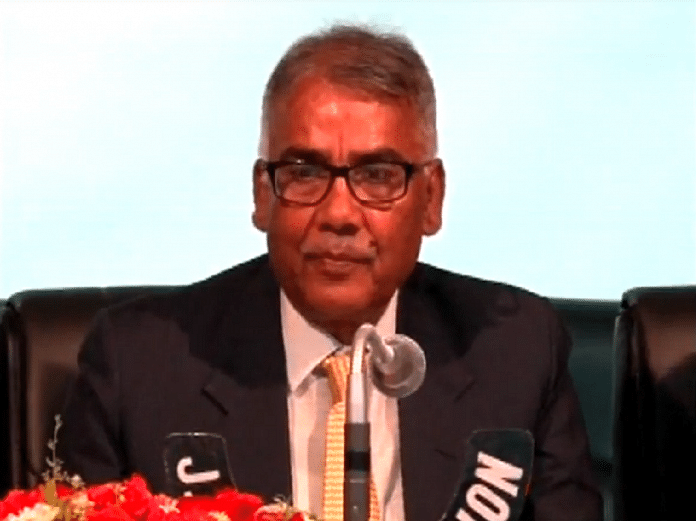Justice Prasad says even the PCI needs to understand what is fake news, because its definition is not clear and is not spelt out by any Act.
New Delhi: After the information and broadcasting ministry was forced to withdraw its order on fake news, the onus will be on the Press Council of India (PCI) and the News Broadcasters’ Association to determine what constitutes fake news in print and electronic media respectively.
In a conversation with ThePrint, Press Council chairman Justice (retd) Chandramauli Kumar Prasad has said it’s important to note the distinction between an inaccurate report and ‘fake news’.
“We have to understand what is fake news. An inaccurate report may not be branded as fake news, but if a person writes a news report knowing it’s fake, it could indeed be a case of fake news,” Prasad said.
However, the definition of fake news is still not clear. There is no mention of fake news or any protocol about it in the Press Council Act of 1978. The Press and Registration of Books Act, 1867, and the Information Technology Act, 2000, don’t have set definitions for news, let alone fake news.
The additional burden of handling cases of fake news, especially in the absence of a legal definition, might put some strain on the PCI. Prasad, however, said that “any burden is welcome”.
Prasad said the PCI does not yet have a separate procedure to deal with fake news, but admitted that it regularly receives complaints about it. “But these complaints are usually against smaller newspapers,” he said.
What is the PCI?
The PCI is a body that regulates print media. Set up by the Press Council Act of 1978, the body consists of a chairman and 28 other members. Its primary objective is to “preserve the freedom of the press and to maintain and improve the standards of newspapers and news agencies in India”.
The Act also gives it the power to hold hearings on complaints it has received, and take suitable action. It can also censure journalists and newspapers that have “offended against the standards of journalistic ethics or public taste”.
Apart from the chairman, the PCI features 13 working journalists, of which six are editors of newspapers. Another six members of the council own or manage the business side of newspapers, while one manages a news agency. Five MPs (three from the Lok Sabha) are also on the council, as are three people – one each nominated by the University Grants Commission, the Bar Council of India and the Sahitya Akademi – who have “special knowledge” of education, science, law, literature and culture.
One of the current members of the council is former journalist and BJP MP from Mysuru Pratap Simha, who made headlines last month for defending Mahesh Hegde, editor of Postcard News, who was arrested for allegedly spreading fake news last week.
Is PCI a paper tiger?
The PCI faces numerous allegations of being a paper tiger, which Prasad contested. He said a due process is followed while looking at all complaints that come to the PCI, including those on fake news.
A committee of 14 looks at every complaint that comes to the PCI. First, it is determined whether the complaint is worthy, then, a hearing is held, before the verdict is passed. An appropriate penalty is then given, commensurate to the severity of the misdemeanour. According to Prasad, the process for each complaint takes about six months.
Prasad said in the last one year, the pendency of cases has gone down significantly, with quick disposal of several complaints. As per official records, the PCI current has 439 pending cases.
Apart from the PCI, the office of the Registrar of Newspapers for India (RNI) also receives complaints about fake news.
“People keep on writing against fake news to public forums – RNI is one of those forums,” said the ex-press registrar and head of department, S.M. Khan.
The RNI does not monitor the content of newspapers, so it doesn’t have a system to monitor fake news, as it doesn’t fall under its mandate. This is part of the PCI’s jurisdiction.



